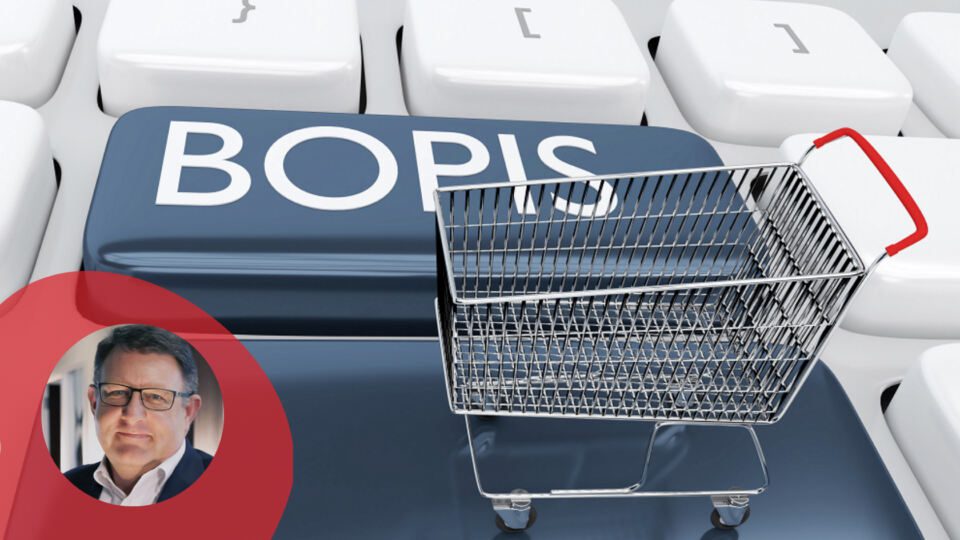Improving customer experience and increasing customer engagement is the key to a sustainable and profitable retail enterprise. The introduction of buy online pick up in-store (BOPIS) and buy online, return in-store (BORIS) services have helped retailers to not only preserve, but further drive customer traffic to stores during the COVID-19 pandemic, helping to create additional revenue streams. However, it isn’t enough to simply offer these services, as inconsistent execution undermines a retailer’s customer base and risks losing some customers entirely.
While retailers can’t guarantee that their customer experience is going to be the best it can be all of the time, there are steps that they can take to provide a more consistent BOPIS and BORIS offering, which in turn helps to aid the all-important customer experience.
Why BOPIS and BORIS Aid Customer Experience
The key to a good customer experience is convenience, and that’s exactly what BOPIS and BORIS can offer. Customers want a simple and straightforward shopping experience, unburdened by unfulfilled or late orders due to stock issues or challenges with locating products. As the world continues to recover from the COVID-19 pandemic, entering our new normal, stores are beginning to see the benefits of leveraging these offerings. BOPIS and BORIS are continuing to revolutionize retail as customer shopping habits become more omnichannel-sale centric than ever before.
How Item-Level RFID is the Key to BOPIS and BORIS
Identifying why it’s essential to implement BOPIS and BORIS is only the first step, as businesses can’t hope to effectively leverage them if they don’t have the right tools. It’s vital to understand that you can’t run a successful omnichannel sales channel if you don’t have an accurate overview of your inventory. This is where item-level RFID comes in.
Fully implemented item-level RFID technology is vital to BOPIS and BORIS. It provides customers with a seamless experience as well as equipping associates with the tools they need to quickly locate items to fulfil customer orders. By taking advantage of item-level RFID technology and its ability to provide a significant increase in inventory accuracy (over 98%), retailers can kickstart an omnichannel offering through successful BOPIS and BORIS implementation.
Customer Experience is the Path to Customer Loyalty
There are plenty of different variables in shopping that affect customer loyalty, ranging from the selection of products sold to the knowledge and engagement of store associates. Some of these variables are more directly impacted by store operational processes than others. A Harvard Business School study found that just a 5% increase in customer retention can lead to a 25% to 95% increase in business profits.
It’s also estimated that it costs businesses five times more to gain new customers than retain the loyalty of existing customers. Being forced to continually acquire new customers to replace departing ones is a costly and inefficient business process, and elevating the engagement of your current customer base is the sound way to profitability.
The most basic aspect of building customer loyalty is to deliver a consistently high-level selling experience, and that begins with having the best technology in place to aid with your offerings and operating a high-level BOPIS and BORIS model.
BOPIS and BORIS are Moving From ‘Nice to Have’ to ‘Business Essential’
Previously, a BOPIS and BORIS offering was a ‘nice to have’ — a perk of being a more technologically advanced retailer. However, as this technology becomes part of everyday retail, those that have had their BOPIS and BORIS offerings up and running for some time begin to stand out for not only providing the service, but for how well they consistently execute the service. Retailers that have been hesitant to address their inventory deficiencies are now at a tipping point where they need to act with urgency to avoid falling behind the competition and hemorrhaging customers.
Dean Frew is Chief Technology Officer and SVP for RFID Solutions, SML Group, and Founder of SML Intelligent Inventory Solutions (formerly Xterprise, purchased by SML in 2013). Frew is responsible for driving SML’s RFID Tags and Solutions strategy. He runs the RFID solutions division, based on his 20+ years of experience delivering RFID solutions to retailers and brand owners around the globe.




